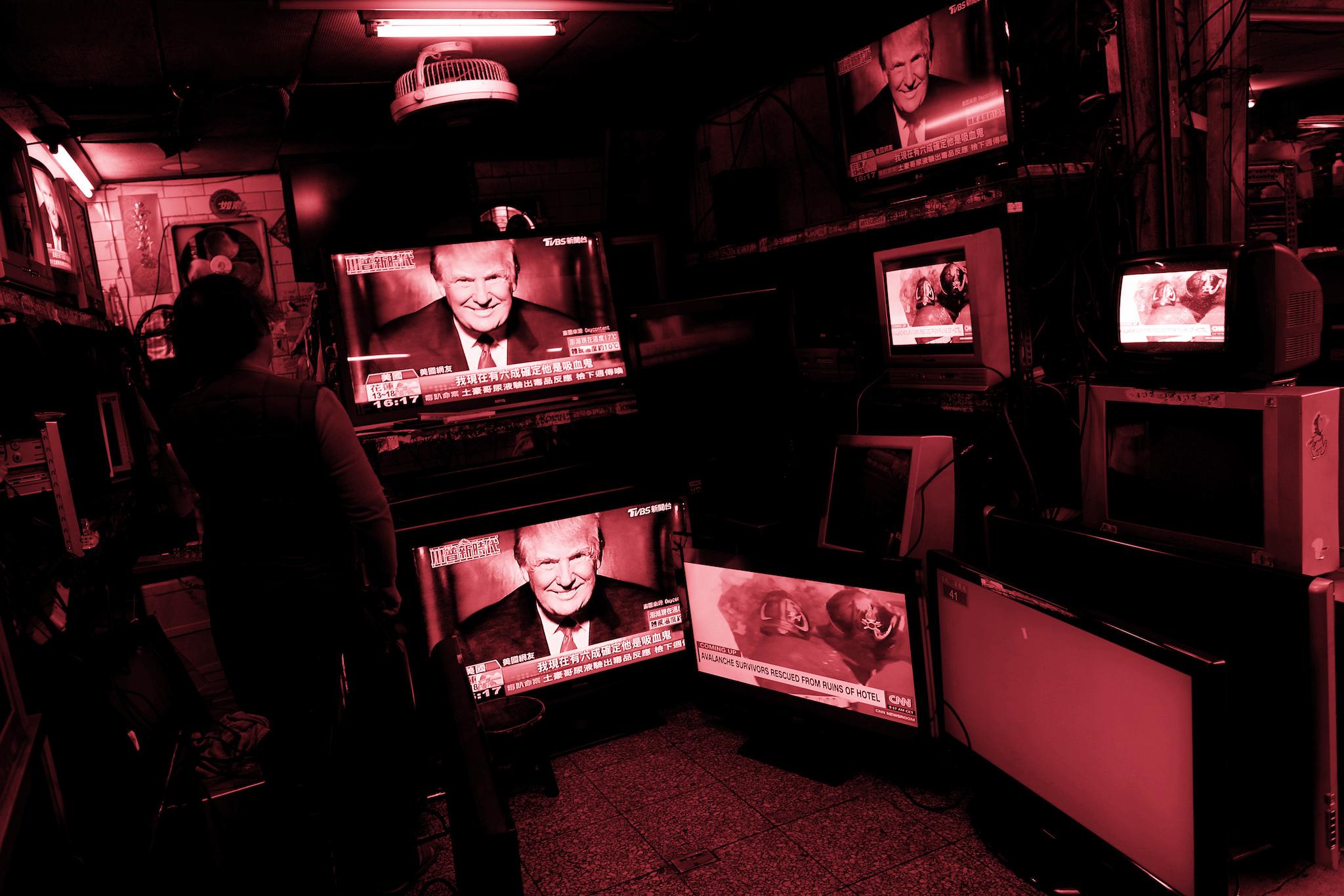Why The Independent needed to launch InFact

Your support helps us to tell the story
From reproductive rights to climate change to Big Tech, The Independent is on the ground when the story is developing. Whether it's investigating the financials of Elon Musk's pro-Trump PAC or producing our latest documentary, 'The A Word', which shines a light on the American women fighting for reproductive rights, we know how important it is to parse out the facts from the messaging.
At such a critical moment in US history, we need reporters on the ground. Your donation allows us to keep sending journalists to speak to both sides of the story.
The Independent is trusted by Americans across the entire political spectrum. And unlike many other quality news outlets, we choose not to lock Americans out of our reporting and analysis with paywalls. We believe quality journalism should be available to everyone, paid for by those who can afford it.
Your support makes all the difference.The phrase “fake news” seems to be everywhere. And the more we see it, the more different meanings it acquires. Who are the worst perpetrators? What can be done to shut them down? Who should we blame? There are new theories every week.
Well, maybe there’s something we can do – “we” meaning The Independent and its readers. We’re launching InFact, a new section of The Independent, to confront fake news head-on. If we see parts of the media use and abuse the facts, we’ll aim to set the record straight. When politicians spin the truth, we’ll aim to debunk their claims. You’ll find thorough explainer articles tackling all key issues from immunology to immigration. And you’ll find fact boxes and graphics across our news coverage to present the truth in bite-size portions. And we need your support: if you see the truth used and abused, tell us and help us call it out on social media. You can follow us via the new accounts on Facebook and Twitter.
But first let’s take a moment to think about the epidemic we’re fighting. The phrase “fake news” became incredibly popular around the 2016 US election, as websites cropped up that made money by publishing “news” that didn’t have the slightest grounding in reality. “Pope Francis Forbids Catholics From Voting For Hillary!” “Bill Clinton’s S*x Tape Just Leaked”.
The term caught on. Under the banner of “fake news”, spin from politicians and the media alike was called out, at a time when the UK was still processing the shock of the Brexit referendum result, and looking back at campaigns that marked a new pinnacle for hyperbole, overclaim and disregard for the old-fashioned virtue of honesty.
In a certain world leader’s vocabulary, “fake news” even seems to mean “valid reports that make me look bad”.
Whichever way you define it, fake news is bad news. It propagates ignorance, and allows voters to be conned and manipulated.
It is not just a problem online, or on social media networks. It is far too convenient for traditional publishers, understandably worried about their futures and revenues, to use fake news as a universal bogeyman of our times. In the UK particularly, we all too acclimatised to a newspaper industry that too often forces the facts to fit an ideological stance, meet a proprietor’s interests or settle a score. Want to see a misleading story? Read all about it. In the US, TV channels represent a huge range: flick from one channel to the next and you can leap from liberal views to commentators so far to the right as to cause real offence. Yet these uses and abuses of facts are often taken for granted.
Against all this, it is worth remembering that, back in 1986, The Independent was created for a reason, and our title was not chosen by accident. Today those reasons are all the more vital. We engage wholeheartedly with as many platforms as we can – the web, social media, subscription apps – to reach as many readers as possible, because we feel it is important for them to access reliable, unspun news. Our way of combating fake news is to tell the truth, and tell it to as many people as possible.
But don’t we have an agenda? We declare it openly: we stand for the values of a progressive, fair world, for liberalism and equality. We are often very forthright about our principles, and sometimes people don’t like it. They didn’t like our agenda-setting coverage of climate change at a time when so many denied its existence. Our opposition to the Iraq War (in many ways we inherited this age of fake news from that previous era of spin doctors) brought us many opponents. We always approach the major issues with an open mind, but fighting bias does not mean reporting both sides equally when the facts show that one is profoundly wrong.
In our comment pages, we represent so many different views, but we are of course mindful that there is a difference between an opinion grounded in fact and an opinion that seeks to deceive. However elaborately constructed, a lie is always a lie. People in this country, declared the Brexiteer Michael Gove, have had enough of experts. Perhaps the same could be said of other countries. But he wasn’t speaking for everyone, and certainly not for The Independent.
Still, we must ensure we hold ourselves to account. And that brings us to the final part of the InFact mission. You’re welcome to flag suspected errors in our own journalism, too. We all need to be kept on our toes.
Join our commenting forum
Join thought-provoking conversations, follow other Independent readers and see their replies
Comments